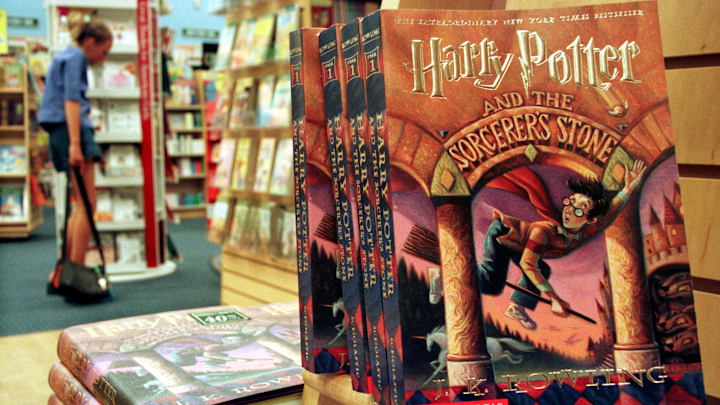Harry Potter and the Philosopher's Stone arrived in Muggle bookstores in 1997, but it was July 2000 when I read a word of it. I read the first book in two hours and sent my mother with my wallet to a bookstore for the second one before closing time. Since then, I have read the series several times and devoted a lot of thought to it. I have written papers on the role of poverty in heroism and why wise old mentors need to die and used The Boy Who Lived in both. Most importantly,, though, I have accepted my sister's charge to help her kids explore pop culture safely; I am the aunt who decided when they were old enough to read the scarier books and had movie nights with them. With that in mind, I'd like to look at a single overarching lesson from each of the chapters in the seven books.
"They just didn't hold with such nonsense."
I know of many people who can recite the first line of their favorite novel from memory and that often includes "Mr. and Mrs. Dursley of number four, Privet Drive, were proud to say that they were perfectly normal, thank you very much." We are introduced to a father who strives to be more ordinary, a wife who is on the lookout for the unexpected, and a son who is permitted to be a terror. All of this is preferable to people finding out that they are associated with the unusual. The Potters, the source of their greatest secret, are even called "unDursleyish" by the narrator of this chapter.
We know from the commentary about fearing the Potters that the Dursleys aren't meant for greatness. No matter who exactly they are or why they are so relentlessly typical in their own eyes, they are at cross purposes with the person whose name is on the book.
By chapter's end, we have seen the Dursleys' lives disrupted. Vernon notices a cat reading a map on his way to work. Owls appear at the wrong time of day and people wear the wrong kinds of clothes. One of the weirdos even hugs him in celebration of the "happy, happy day."
Worst - or best - of all, things are going on without their knowledge. Just after Mr. Dursley falls asleep, a man apepars "so suddenly and silently you'd have thought he'd just popped out of the ground." His name is Albus Dumbledore and he "didn't seem to realize that he had jsut arrived in a street where everything from his name to his boots was unwelcome." He soon talks the aforementioned cat into taking human form, discusses the downfall of a dark lord, and welcomes a giant on a fly8ing motorbike to Privet Drive. More importantly, these three welcome the 15-month-old orphan named Harry Potter to the scene and the narrative.
The lesson: Dare to be different
Over a decade before I cracked open the first book about Hogwarts School of Witchcraft and Wizardry, I read another fantastical book in a single sitting. A Wrinkle in Time is one of my favorite books of all time and there is a passage that reminds me of Privet Drive:
"The houses in the outskirts were all exactly alike, small square boxes painted gray. Each had a small, rectangular plot of lawn in front, with a straight line of dull-looking flowers edging the path to the door. Meg had a feeling that if she could count the flowers there would be exactly the same number for each house. In front of all the houses children were playing. Some were skipping rope, some were bouncing balls. Meg felt vaguely that something was wrong with their play."Madeline L'Engle, A Wrinkle in Time
When three children try to ask questions, the woman they meet protests that her papers are in order and she's given her Decency Donations. She is proud that the children are perfectly trained and "we haven't had an Aberration in three years." This wrongness is emblematic of a world where control has driven out love and it is love, in the end, that saves the day.
Dumbledore is an Aberration to the Dursleys, as is that map-reading cat Professor McGonagall. Hagrid and his gigantic size are certainly in that same category. And Harry will soon become just like them. But we see all of these people doing good and forging ahead into a world where darkness has been vanquished for the time being. Aberrations like the only person to survive a killing curse are going to be at the heart of the fantastic in this book and, indeed, in this series.
It's no wonder that weirdos and the unwelcome all over the country are saluting "Harry Potter - the boy who lived!"
